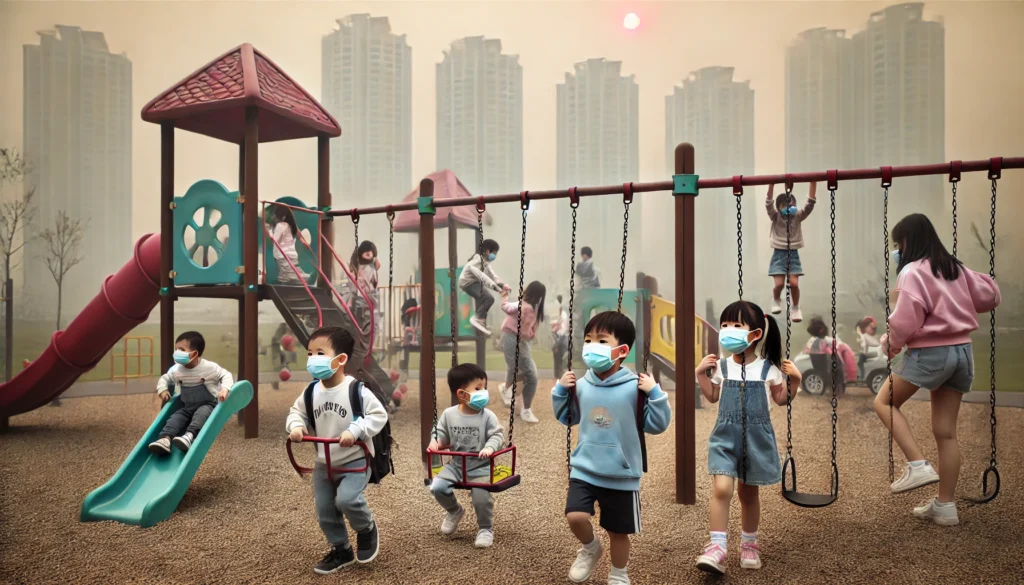Hello readers! Today, we’re going to discuss a topic that’s extremely relevant and important for all of us living in India – the impact of air pollution on public health. It’s a subject that touches each of our lives, often in ways we may not even realize. Let’s explore how the air we breathe can affect our health and what we can do about it.
Introduction
Air pollution is a significant environmental problem that impacts both urban and rural regions. With rapid industrialization and urbanization, the quality of air in many parts of India has deteriorated significantly. The effects of air pollution on public health are extensive and varied, causing numerous health issues that can impact people of all ages. In this blog, we will delve into the specific ways air pollution harms our health and discuss practical steps we can take to mitigate these effects.
What is Air Pollution?
Air pollution is defined by the presence of harmful pollutants in the atmosphere we breathe. These pollutants can be natural, like dust and pollen, or man-made, such as emissions from vehicles, factories, and agricultural activities. The most common air pollutants include particulate matter (PM), nitrogen oxides (NOx), sulfur dioxide (SO2), carbon monoxide (CO), and volatile organic compounds (VOCs).
How Does Air Pollution Affect Our Health?
Respiratory Problems
One of the most immediate and visible impacts of air pollution is on our respiratory system. Inhaling polluted air can cause irritation in the respiratory tract, leading to ailments such as asthma, bronchitis, and chronic obstructive pulmonary disease (COPD). For instance, during the winter months, many cities in North India experience a spike in respiratory illnesses due to high levels of PM2.5 (particulate matter less than 2.5 micrometers in diameter).
Cardiovascular Diseases
Prolonged exposure to air pollution can also negatively affect the cardiovascular system. Fine particulate matter (PM2.5) and nitrogen dioxide (NO2) can penetrate the bloodstream, causing inflammation and damage to blood vessels, which increases the likelihood of heart attacks, strokes, and high blood pressure. Studies have shown that people living in highly polluted areas are more prone to cardiovascular diseases.
Impact on Children
Children are particularly vulnerable to the effects of air pollution. Their developing lungs and immune systems make them more susceptible to respiratory infections and allergies. Exposure to polluted air can also impair cognitive development and academic performance. In Delhi, for example, many schools have to shut down during periods of severe air pollution to protect the health of their students.

Effects on the Elderly
The elderly population is another group that is highly affected by air pollution. Age-related health issues, such as weakened immune systems and pre-existing respiratory and cardiovascular conditions, can be exacerbated by poor air quality. This can result in more frequent hospital visits and a higher risk of premature mortality among older adults.
Mental Health Impacts
While less obvious, air pollution can also affect mental health. Research has found a connection between exposure to polluted air and higher rates of mental health conditions like depression and anxiety. Although the precise mechanisms are still being studied, it is thought that inflammation caused by air pollution might impact brain health.
Economic Costs
The health impacts of air pollution also translate into significant economic costs. These include healthcare expenses, lost productivity, and reduced quality of life. For example, managing respiratory and cardiovascular diseases caused by air pollution imposes a substantial burden on our healthcare system and the economy.
Tackling Air Pollution: What Can We Do?
Government Initiatives
The Indian government has taken several steps to combat air pollution. Programs like the National Clean Air Programme (NCAP) aim to reduce air pollution levels by 20-30% by 2024. The implementation of stricter emission norms for vehicles (Bharat Stage VI), promotion of electric vehicles, and enhancement of public transportation infrastructure are some of the key measures being taken.
Individual Actions
As individuals, we can also contribute to improving air quality. Simple actions like using public transport, carpooling, and reducing the use of personal vehicles can make a big difference. Planting trees, reducing the use of firecrackers, and avoiding the burning of waste are other ways we can help.
Corporate Responsibility
Businesses and industries have a crucial role in tackling air pollution. Companies can adopt cleaner technologies, improve waste management practices, and reduce emissions through better energy efficiency. For instance, Tata Motors (a prominent Indian automotive company) has been diligently working on developing and promoting electric vehicles as part of its sustainability efforts.
Awareness and Education
It is essential to raise public awareness about the health impacts of air pollution. Educating the public about the sources of pollution and ways to reduce exposure can lead to more informed and proactive communities. Schools and colleges can incorporate environmental education into their curricula to foster a sense of responsibility among young people.
Conclusion
Air pollution is an urgent issue that requires our immediate attention. The impact of air pollution on public health is extensive, affecting our respiratory and cardiovascular systems, mental health, and overall quality of life. By recognizing these impacts and taking collective action, we can strive towards cleaner air and a healthier future for everyone. Let’s make conscious choices every day to reduce our contribution to air pollution and protect the health of our communities.
Author’s Note
Thank you for taking the time to read this blog. I hope it has shed light on the serious issue of air pollution and its impact on public health. Together, we can make a difference by making small changes in our daily lives. Stay informed, stay healthy!
G.C., Ecosociosphere contributor.




